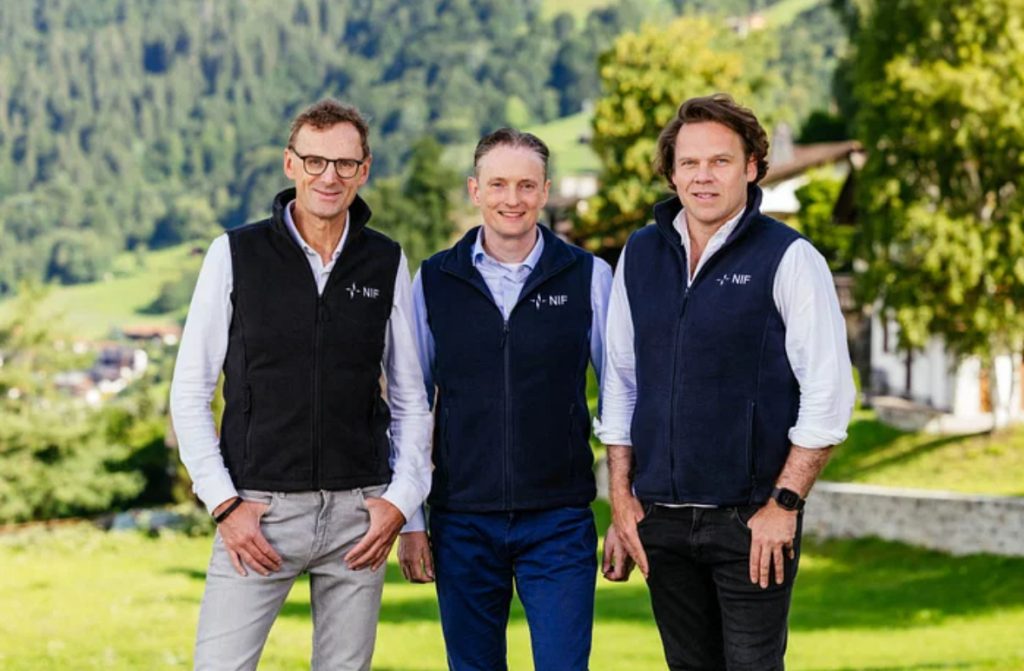The NATO Innovation Fund (NIF) is entering a new chapter following significant changes to its leadership and investment strategy, reflecting the shifting landscape of defense and technological innovation. Launched with a robust commitment of $1 billion from over 20 member nations, the fund has seen a surge in interest towards dual-use technologies—those that serve both civilian and military purposes. This growing focus comes as NATO member states ramp up military spending, driven in part by geopolitical tensions and the ongoing war in Ukraine.
NIF’s Evolution and New Leadership
Since its inception, the NATO Innovation Fund has faced several challenges, including management issues and the unexpected departure of key personnel. With the recent NATO Summit in The Hague reiterating the importance of the fund, NIF is now transitioning to a streamlined leadership structure composed of three partners: Ulrich Quay, Sander Verbrugge, and Patrick Schneider-Sikorsky. Quay and Verbrugge are new additions to the team, while Schneider-Sikorsky remains the final founding member of the original group.
Quay, who previously held a vice president role at BMW where he oversaw corporate investments, brings a wealth of experience in corporate venture funding to NIF. Verbrugge, meanwhile, has a background in deep tech investment and holds a PhD in molecular biophysics, assets that could enhance the fund’s technological acumen and investment strategy. Schneider-Sikorsky, based in London, provides continuity and institutional knowledge that may help guide the fund through its ongoing transformation.
Kelly Chen, another founding partner, has confirmed her departure to pursue new ventures, although she will remain involved with NIF-backed startups on their boards until her employment officially concludes. This movement within the team is indicative of the evolving nature of the organization as it adapts to meet contemporary challenges in defense and security.
Investment Strategy and Market Context
The backdrop to NIF’s renewed focus is the unprecedented growth in venture capital funding for defense and resilience technology, which recently accounted for 10% of all VC funding in Europe, according to a report by TechCrunch. Since its launch, NIF has made 19 investments, including seven into funds and 12 into startups ranging from Space Forge, which aims to produce chip materials in space, to Tekever, known for its dual-use drone solutions.
Despite the challenges faced in deploying capital efficiently, NIF’s leadership, particularly through comments made by its chief communications officer, Amalia Kontesi, asserts that the fund is on track to meet its investment goals for the year. “While some observers wish the fund had deployed capital faster, NIF is actively investing in a range of projects that align with our strategic objectives,” Kontesi stated, reflecting a commitment to an adaptive investment approach in a rapidly evolving landscape.
In addition to new partnerships, NIF has enhanced its engagement with defense initiatives through its involvement in NATO’s Rapid Adoption Action Plan. This plan is intended to expedite the integration of innovative technologies within military frameworks, showcasing NIF’s alignment with NATO’s broader strategic goals. Furthermore, NIF has established its Mission Platform Group to assist startups in navigating the complexities of military procurement, which is crucial for the operational deployment of new technologies.
Community Reaction and Future Prospects
The restructuring within NIF and its strategic pivot towards dual-use technologies have evoked mixed reactions. Some critics argue that the fund’s focus may overlook the urgent needs for direct investment in defense capabilities, especially in light of ongoing conflicts involving NATO member states. Nevertheless, proponents emphasize that the dual-use approach is essential for fostering innovation while ensuring that the technologies developed are versatile enough to aid both civilian and military applications.
NIF’s vice-chair, Professor Fiona Murray, articulated a vision for the organization akin to that of a startup: “We are proud of what we accomplished, but like any effective team, we are learning, experimenting, and improving.” This statement signifies a proactive approach to refining processes, enhancing ecosystem support for startups, and focusing on opportunities within defense and security sectors.
In summary, the NATO Innovation Fund is navigating a transformative phase marked by leadership changes and a renewed focus on collaborative investment strategies. As it adapts to the dynamic geopolitical landscape and increasing demand for innovative defense technologies, NIF aims to position itself at the forefront of supporting startups and addressing the challenges of modern security.

